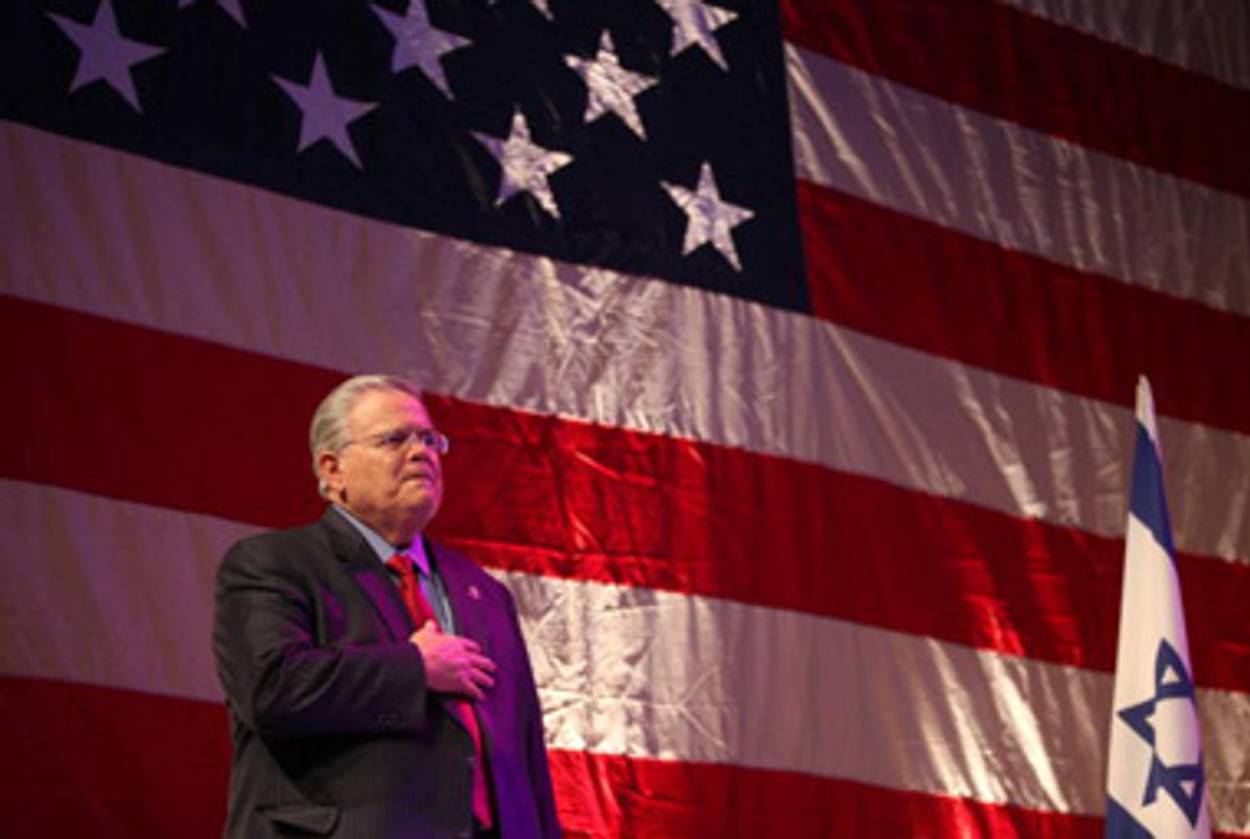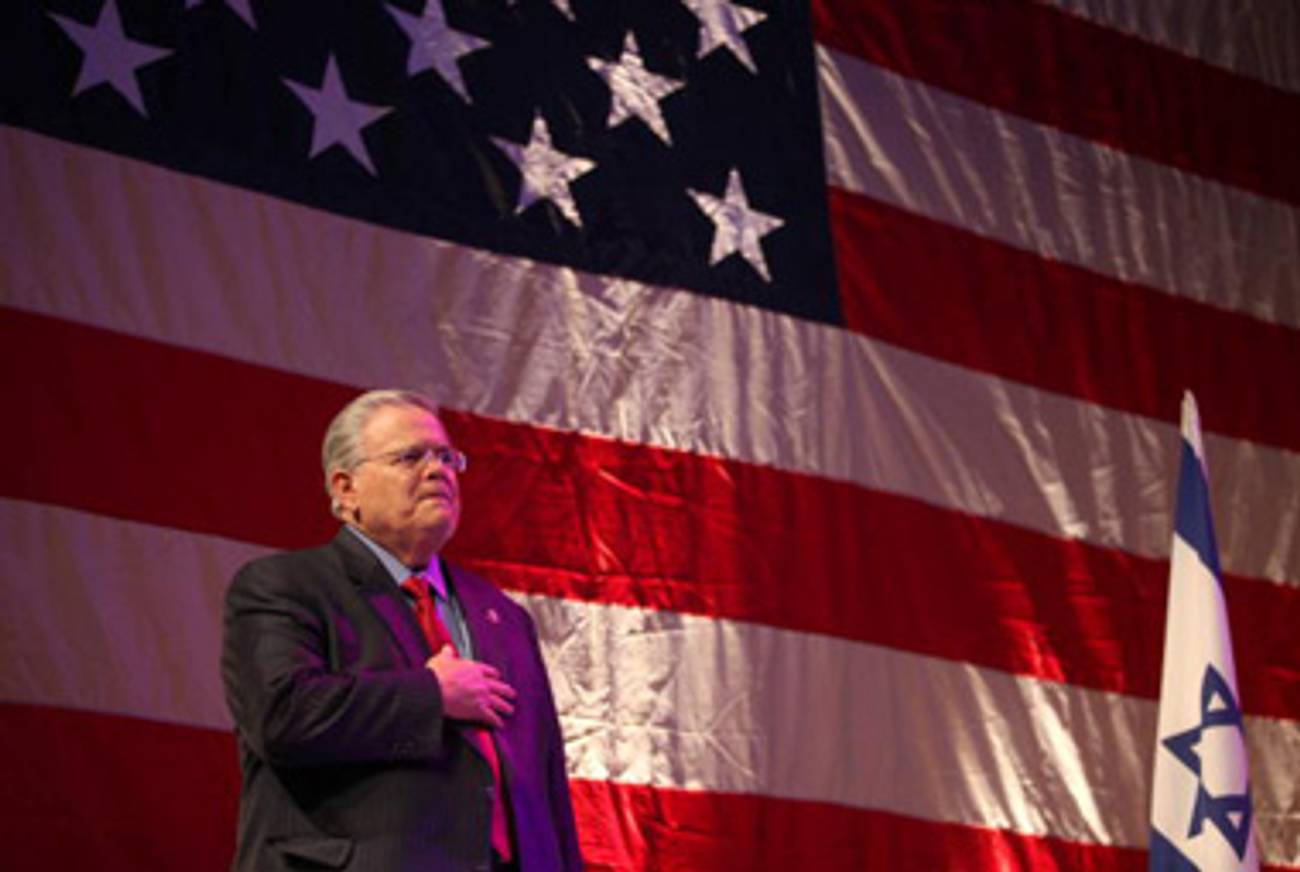GOP Mostly Undivided on Israel
But maybe a little divided on Egypt?




When I wondered whether Sen. Rand Paul’s call for ending U.S. aid to Israel would trigger a GOP civil war between the Tea Party and the establishment, I neglected to consider a crucial element in the Republican coalition: The Christian right. Sure enough, it has weighed in, and sure enough, it is, as ever, a strong supporter of American support for Israel. Pastor John Hagee of Christians United for Israel—which Mideast columnist Lee Smith has profiled—argued that most elements of the Tea Party do not stand with Paul. I’m not convinced that is true. I am, however, convinced that, more importantly, the Paul faction is vastly outnumbered in the GOP overall.
The far more interesting fissure on that side of the aisle right now is between neoconservatives like Elliott Abrams—also profiled by Smith—and Bill Kristol who are more or less supportive of the anti-Mubarak, pro-democracy protesters—they see the nascent revolution as the fulfillment of George W. Bush’s “Freedom Agenda” (though you could argue, as Matt Duss does, that that misrepresents what the Freedom Agenda actually was)—and Israel’s current right-wing government as well as other Israel supporters, who fear the form that Egyptian democracy will take. (Ben Smith and Josh Gerstein note that a few U.S. neocons, like John Bolton, take the Israeli position.) Reality: It’s messy!
Evangelicals Blast Paul on Israel [Ben Smith]
In Backing Change in Egypt, U.S. Neoconservatives Split With Israeli Allies [WP]
Hosni Mubarak Splits Israel from Neocon Supporters [Politico]
Related: Friends In Deed [Tablet Magazine]’
Rescuing Democracy Promotion from Cynics [Wonk Room]
The Shadow Viceroy [Tablet Magazine]
In the Streets of Cairo, Proof Bush Was Right [Outlook]
Earlier: Tea Party Senator Endorses End of Israeli Aid
Marc Tracy is a staff writer at The New Republic, and was previously a staff writer at Tablet. He tweets @marcatracy.